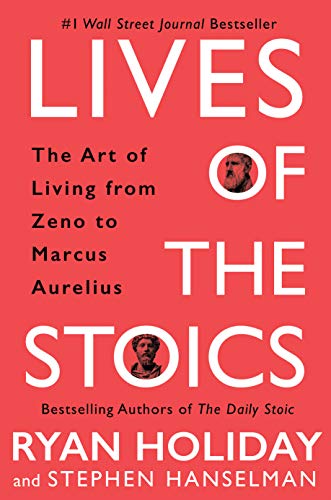
Lives of the Stoics: The Art of Living from Zeno to Marcus Aurelius

Discipline Is Destiny: The Power of Self-Control (The Stoic Virtues Series)
Ryan Holiday • 1 highlight
amazon.com

Many in the last few years have taken a keen interest in the works of Epicurus, Epictetus, Seneca, and Marcus Aurelius. And not for intellectual reasons—they find secrets to the meaning of their lives therein, and it brings them happiness.
Arthur C. Brooks • From Strength to Strength
The Daily Stoic: 366 Meditations on Wisdom, Perseverance, and the Art of Living: Featuring new translations of Seneca, Epictetus, and Marcus Aurelius
amazon.com